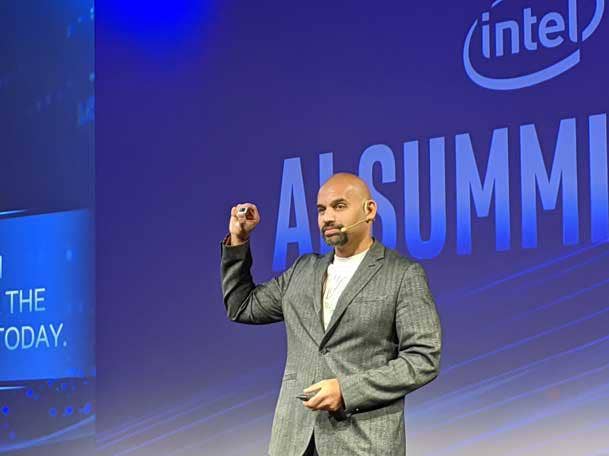Top Intel AI Exec Naveen Rao Departs After Nervana Pivot
'It has been a remarkable experience building a new brand within Intel and sharpening the focus around #ai at the company! I wish all of my colleagues well as the field of AI matures,' Intel AI executive Naveen Rao said in a tweet announcing his departure.

Naveen Rao, Intel's top artificial intelligence executive, is stepping down from his role after the semiconductor giant decided to ditch plans for its Nervana neural network processors that stemmed from the namesake startup Rao co-founded and led.
The Santa Clara, Calif.-based chipmaker confirmed to CRN on Wednesday that Rao, who was corporate vice president and general manager of Intel's AI Platforms Group, is leaving the company after the executive announced his departure in a tweet earlier in the day. Rao was part of Intel's executive management team.
[Related: Nvidia T4, V100 Sales Push Data Center To Double-Digit Growth]
"I have decided to leave #intelai. It has been a remarkable experience building a new brand within Intel and sharpening the focus around #ai at the company! I wish all of my colleagues well as the field of AI matures," Rao said in the tweet.
I have decided to leave #intelai. It has been a remarkable experience building a new brand within Intel and sharpening the focus around #ai at the company! I wish all of my colleagues well as the field of AI matures.
Never stop innovating!
— Naveen 0xDEADBEEF (@NaveenGRao) February 26, 2020
Rao told CRN that his last day is March 10.
Intel executive Gadi Singer, a 36-year company veteran who previously led Intel's Inference Products Group under Rao, has taken over Rao's position, according to an Intel spokesperson.
"We thank [Rao] for his contributions including building a world-class AI team at Intel," the Intel spokesperson said.
Rao's departure comes less than a month after Intel announced that it would phase out development of its Nervana neural network processors to focus on the Gaudi and Goya processors the chipmaker absorbed through its $2 billion acquisition of Habana Labs in December.
At the time, Intel said it had ended development of its Nervana NNP-T training chips and will deliver on current customer commitments for its Nervana NNP-I inference chips, so that it can move forward with Habana Labs' Gaudi and Goya processors in their place.
"Habana product line offers the strong, strategic advantage of a unified, highly-programmable architecture for both inference and training," Intel said in a statement on Jan. 31. "By moving to a single hardware architecture and software stack for data center AI acceleration, our engineering teams can join forces and focus on delivering more innovation, faster to our customers."
Intel had been developing the Nervana chips since it acquired the namesake company, Nervana Systems, for a reported $408 million in 2016. Rao was one of Nervana's founders and had been the startup's CEO from the beginning, according to his LinkedIn page.
Following Intel's acquisition of Nervana, Rao had become the top spokesperson for Intel's AI efforts as the vice president and general manager of the company's AI Products Group. That group transformed into the AI Platforms Group through a restructuring of the company's Data Center Group last fall.
The future of Intel's plans with Nervana came into question only weeks after Rao shared details and launch plans for the neural network processors at the Intel AI Summit in mid-November of last year. After rumors of Intel's plan to acquire Habana Labs were floated in early December, analysts began to question whether Habana Labs' and Nervana's products could co-exist.
While Intel ultimately planned to discontinue work on Nervana, the company has built out a fast-growing AI business under Rao's leadership. Bob Swan, Intel's CEO, said the company brought in $3.8 billion in AI-based revenue, which includes other Intel products, such as its Xeon server processors.
"Habana, combined with Intel's existing AI ASICs and software expertise, will advance our AI offerings for the data center with high performance training and inference processors and a standards-based programming environment to address evolving AI workloads," Swan said in Intel's most recent earnings call.